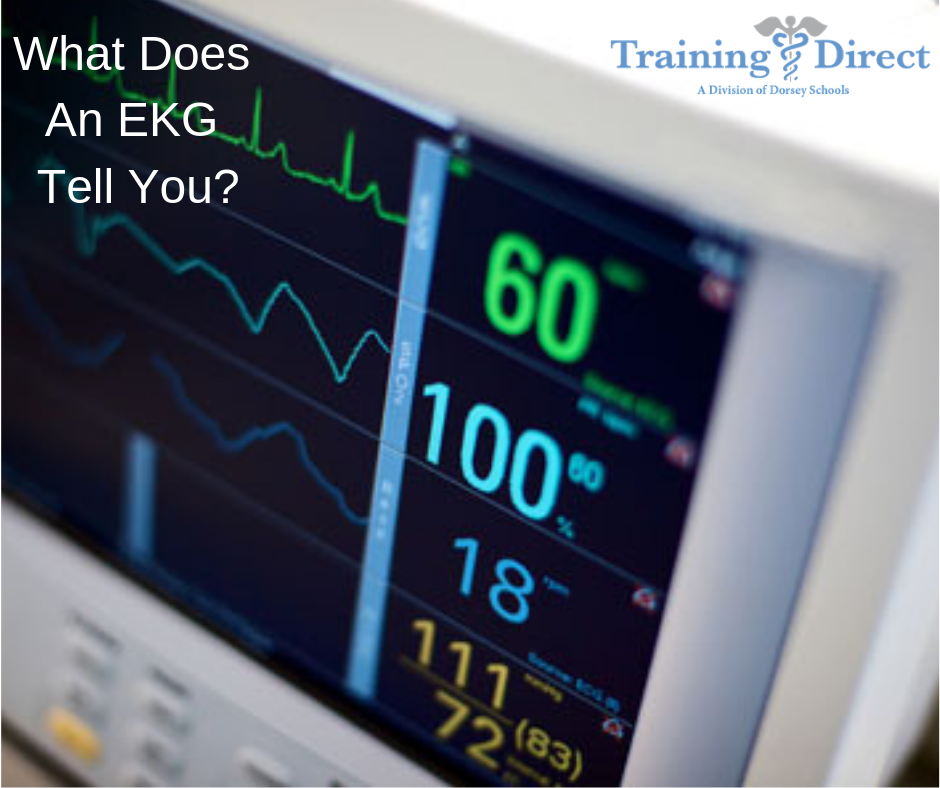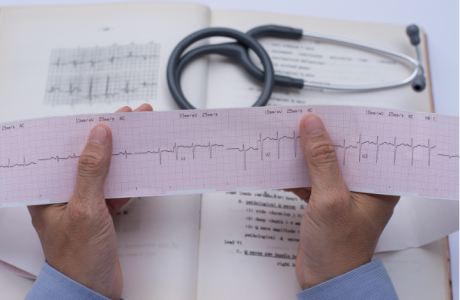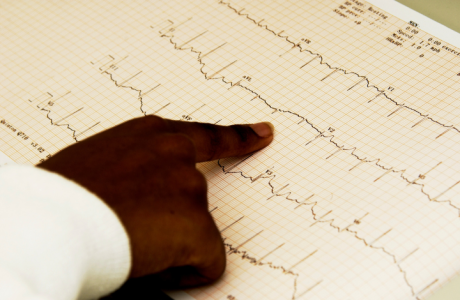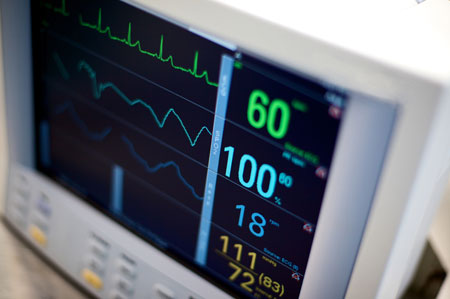It’s always important to keep up the health of your heart. What better time to check in on your health than during National Heart Health Month! One way people may become more aware of their heart health is through an EKG test. You might be thinking, what does an EKG test look for? An EKG test is a shortened way to refer to an ‘electrocardiogram test’. An EKG is also commonly referred to as an ECG test; the terms are synonymous. This test is most often used to check for abnormalities within your heart and overall heart status. In this blog we will cover what an EKG test looks for as well as what happens during and after an EKG.
This blog is for informational use only. If you feel you are having heart health problems, it would be best to reach out to your doctor or medical care provider.
What Does AN EKG Test For: Monitoring Heart Rhythm
An EKG test assists doctors to monitor your heart rhythm. Every heart has an electric rhythm that can indicate different signs of overall heart health. When an EKG test is being conducted, the different chambers within your heart send out electric pulses. These pulses show up on a graph and often look like waves on a chart. Once the waves have been recorded, a medical professional will take these results and measure them in correspondence with the different electrical phases of your heartbeat to determine your heart health.
What Happens During an EKG?
What happens during an EKG can be explained in a few short steps:
Step 1- The EKG Tech or Medical Assistant will explain any necessary info in preparation for the test
Step 2- Once prepared, you will put on what is called a cape
Step 3- Sticky pads (electrodes) will be properly placed on your body
Step 4- Your Medical Assistant or EKG Tech will begin the EKG test
Important Note: An EKG is a quick and painless process and does not run any electricity through your body, it only reads your body’s current electricity.
Step 5- Your EKG is done and it’s time for results! One of two things may happen once you complete your EKG test. Your physician may come into your testing room and discuss your results with you that day, or an appointment will be made for you to discuss your results with your physician at a later date.
As previously stated, we suggest you reach out to your physician or a medical professional if you have any concerns or questions. If you feel you have been experiencing any heart abnormalities, you may want to reach out to someone today.
EKG Training | EKG Technician program | Training Direct | Bridgeport, CT
Training Direct’s EKG Technician program is offered at our Bridgeport campus located in Bridgeport, CT. The EKG Tech program can be completed in as little as two weeks.
In this program, students will have the opportunity to learn how to run an EKG. They can also learn about the different instruments used to detect heart abnormalities, how to analyze cardiac rhythms, lead placement, patient prep for an EKG and more.
If you are interested in learning more about the EKG Technician program, please contact us here for more information. We hope to hear from you soon.
Training Direct is a division of Dorsey Schools.
Sources:
https://www.webmd.com/heart-disease/electrocardiogram-ekgs#1
https://www.webmd.com/heart-disease/electrocardiogram-ekgs#1-3
https://www.mayoclinic.org/tests-procedures/ekg/about/pac-20384983
http://www.bloodpressureuk.org/BloodPressureandyou/Medicaltests/ECG
https://www.heart.org/en/health-topics/high-blood-pressure/health-threats-from-high-blood-pressure/how-high-blood-pressure-can-lead-to-a-heart-attack
http://www.vacardio.com/for-patients/blog/ekg-cardiovascular-test-purpose/




